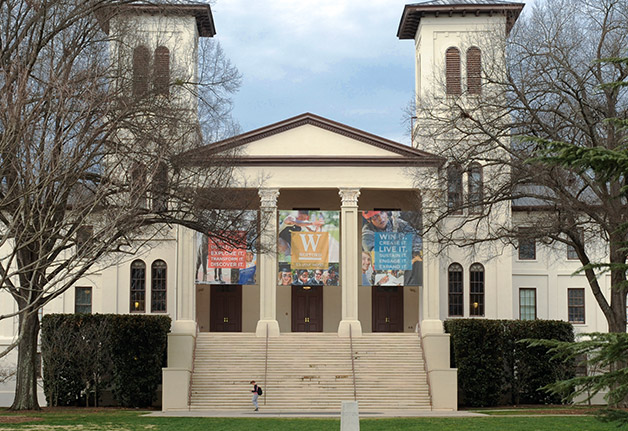When Dr. John Ware, associate professor of English and chair of the college’s Post-graduate Scholarship Committee, talks with students about applying for major postgraduate scholarships, he gives them three pieces of advice:
- Carefully read through the “wealth and variety” of opportunities on the postgraduate scholarship page on the Wofford website. “These are pretty special opportunities that our students are well situated for because they attend a small liberal arts college.”
- Spend time developing mentoring relationships with Wofford’s faculty. “Wofford cultivates these important relationships from the start, and our students who apply for postgraduate scholarships need those relationships and the letters of support that come out of those.”
- Seek out opportunities to participate in college beyond the academic record or transcript. “Almost always, postgraduate applicants need to demonstrate some sort of research opportunity, community-based learning or leadership experience. Some, such as the Fulbright, weigh study abroad and second-language knowledge heavily.”
Ware has served on the scholarship committee since 2010. For many years Dr. Dan Maultsby ’61, dean of the college at the time, and Dr. Ana Maria Wiseman, dean of international programs, shared responsibilities for helping students navigate the often-complicated application process. Now the Post-graduate Scholarships Committee consists of Dr. Kara Bopp, associate professor and chair of psychology; Dr. Cynthia Fowler, associate professor of sociology and anthropology; Dr. Stacey Hettes, associate professor of biology and associate provost for faculty development; Dr. Kirsten Krick-Aigner, professor and chair of modern languages, literatures and cultures; and Ware.
“Working with students on postgraduate scholarships is a group effort that involves faculty and staff beyond the committee,” says Ware, who appreciates the efforts of those who serve as volunteers to identify both scholarships and candidates, help with the application and interview process, and serve as liaisons between the college and different scholarship funders. “Many colleges and universities have offices with full-time staff who oversee postgraduate scholarship applications, so we’re unusual in this respect.”
In the fall, 17 students, from first year to senior year, attended information sessions about applying for postgraduate scholarships. The students represent departments and programs across all disciplines and aspire to futures in medicine, teaching, international relations and public policy.
“Because the scholarships are so various, we can accommodate students with great variations in terms of interest, experience and academic program,” says Ware. “We’ve had good success and are excited to build on that.”
